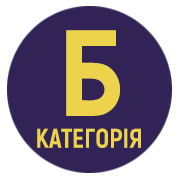FROM THEORY TO PRACTICE: ORGANIZATIONAL AND PEDAGOGICAL CONDITIONS FOR DEVELOPING DIGITAL COMPETENCE IN COMPUTER SCIENCE LESSONS
DOI:
https://doi.org/10.32782/ped-uzhnu/2024-4-10Keywords:
digital competence, computer science, pedagogical conditions, cloud technologies, artificial intelligence, programming, interactive learningAbstract
The article examines the current state of digital competence among high school students and identifies the key organizational and pedagogical conditions for its development in computer science lessons. The proposed model includes components aimed at achieving a high level of digital competence among students, taking into account their individual needs and interests. The implementation of this model requires a comprehensive approach and active participation of all stakeholders in the educational process. Research findings indicate that the level of digital competence among high school students is uneven. A significant portion of students possesses basic computer and internet skills but struggles with more complex tasks such as programming, data analysis, or developing digital projects. This highlights the need to enhance the formation of comprehensive digital competence within the computer science curriculum. Developing digital competence in high school students requires creating specific organizational and pedagogical conditions. These conditions include the integration of digital technologies into the educational process. This will be facilitated by improving teacher qualifications, developing and implementing new educational programs, individualizing learning, and motivating students to study computer science. The model for developing digital competence in high school students during computer science lessons includes several important components. It involves clearly defining the goals and objectives that outline the competencies to be developed during the learning process. Developing educational modules is necessary to cover all aspects of digital competence. Methodological support includes lectures, practical exercises, projects, group work, and discussions that facilitate the acquisition of knowledge by students. Regular assessment of digital competence levels and providing feedback allow for adjusting the educational process to achieve better results. Extracurricular activities contribute to deepening students’ interest in information technology and their further development.
References
Відкрита освітня платформа Prometheus. Дистанційне навчання та онлайн-курси. 2024. Доступно на: https://prometheus.org.ua/
Голобородько, Є. В. Використання хмарних технологій в управлінні закладом освіти О.В. В Р. Черновол-Ткаченко, О. Мармаз, О. Гречаник (ред.) Модернізація управління в контексті вимог Закону України «Про освіту» Ред. Харків: ХНПУ імені Г. С. Сковороди. С. 2020.С. 81–85.
Інформаційно-аналітичний центр при Міністерстві освіти і науки України. Національна стратегія розвитку освіти в Україні на період до 2030 року. 2020. Доступно на: https://mon.gov.ua/storage/app/media/education/2020/04/29/strategiya-2020-2030.pdf
Карташова Л. А. Відкритий мережевий ресурс «Accent»: інноваційні можливості для освітян Л. А. Карташова. Комп’ютер у школі та сім’ї. 2016. № 5 (133). С. 3–8.
Катренко А.В., Пасічник В.В. Системний аналіз. Львів : Новий світ-2000, 2023. 396 с.
Кремень В., Биков В., Ляшенко О., Литвинова С., Луговий В., Мальований Ю., Пінчук О., Топузов О. Науково-методичне забезпечення цифровізації освіти в Україні: стан, проблеми, перспективи : Наукова доповідь загальним зборам НАН України «Науково-методичне забезпечення цифровізації освіти в Україні: стан, проблеми, перспективи». ”, 18–19 листопада 2022 р. Вісник НАПН України, 4(2), 2022. С.1–49
Литвинова С. Г. Теоретико-методичні основи проектування хмаро орієнтованого навчального середовища загальноосвітнього навчального закладу : дис. ... д-ра пед. наук : 13.00.10 Світлана Григорівна Литвинова ; Ін-т інформ. технологій і засобів навчання НАПН України. Київ, 2016. 601 с.
Міністерство цифрової трансформації України. Національна програма розвитку штучного інтелекту. 2023. Доступно на: https://mcit.gov.ua/ua/main/projects/nacionalna-programa-rozvitku-shtuchnogo-intelektu
Морзе Н.В. Як навчати вчителів, щоб комп’ютерні технології перестали бути дивом у навчанні? Н.В. Морзе Комп’ютер у школі та сім’ї. № 6 (86). 2010. С. 10–14.
Національний центр інформаційно-освітніх ресурсів (НЦІОР). Рекомендації щодо впровадження штучного інтелекту у навчальні заклади. 2021. Доступно на: http://ncior.gov.ua/
Олексюк В., Спірін О. Основи хмарних технологій О.В. Київ : ІДЕ НАН України. 2023.
Освітній портал «Освіта.ua». Інтеграція інформаційно-комунікаційних технологій у навчальний процес. 2022. Доступно на: https://osvita.ua/
Петрова, І. О. Використання хмарних технологій в освіті: методичні рекомендації для вчителів. 2018. Доступно на: http://nbuv.gov.ua/UJRN/techedu_2018_8_32
Пінчук, О.П., Литвинова, С.Г., Буров О.Ю. Cинтетичне навчальне середовище – крок до нової освіти. Інформаційні технології і засоби навчання. 2017.Том 60. № 4 (2017). C. 28–45.
Хан, І., Ахмад, А.Р., Джабер, Н., і Махді, Міннесота Підхід штучного інтелекту для моніторингу успішності учнів і розробки превентивних заходів. Розумні навчальні середовища, 2021. С. 8–17.
Центр інноваційних освітніх технологій (ЦІОТ). Освітні платформи для сучасного уроку: порівняльний аналіз. 2023. Доступно на: http://ciot.in.ua/ua/analitika/strategiji-rozvitku-osviti-v-ukrajini
Шишкіна М. П. Теоретико-методичні засади формування і розвитку хмаро орієнтованого освітньо-наукового середовища вищого навчального закладу : дис. ... д-ра пед. наук / М. П. Шишкіна. Київ, 2016. 441 с.
Шишкіна, М., Носенко, Ю., & Мар’єнко, М. Стан цифровізації освіти в контексті відкритої науки. Фізико-математична освіта, 37(5), 2022. С. 64–68.
Balyk, N., Vasylenko, Y., Shmyger, G., Oleksiuk, V. and Skaskiv, A. Design of approaches to the development of teacher’s digital competencies in the process of their lifelong learning. Ceur workshop proceedings, 2393, 2019. pp. 204–219.
International Society for Technology in Education (ISTE). ISTE Standards for Students. 2016. Retrieved from https://www.iste.org/standards/for-students
Morze, Nataliia та Smyrnova-Trybulska, Eugenia та Drlik, M. та Buinytska, Oksana та Буйницька, Оксана Петрівна. Development of advanced digital ecosystems at universities: A study comparing experiences from Ukraine, Poland and Slovakia The European Institute of Education and Social Policy, 4 (54). 2023. С. 647–664.
UNESCO Institute for Statistics. Digital Skills for Life and Work. UIS Fact Sheet No. 48. 2018.







